Serving Fountain Valley and Orange County communities for over 35 years. (714) 343-9294 MICAH STOVALL #DRE01240489 Real Estate
Real Estate Just Listed Today in Fountain Valley CA
-
$575,000
17200 Newhope Street #217
Fountain Valley, CA -
$419,999
17200 Newhope Street #109
Fountain Valley, CA -
$659,990
17168 Newhope #222
Fountain Valley, CA -
$1,435,000
18016 Roch Court
Fountain Valley, CA -
$1,550,000
18021 Roch Court
Fountain Valley, CA -
$1,500,000
9429 El Valle Ave
Fountain Valley, CA -
$1,598,000
8803 Hummingbird Avenue
Fountain Valley, CA -
$755,000
17200 Newhope St #23
Fountain Valley, CA -
$2,295,000
17413 Siena Lane
Fountain Valley, CA -
$1,590,000
9808 Sturgeon Ave
Fountain Valley, CA
Lot Size2.55 ac
Home Size1,040 sqft
Beds2 Beds
Baths2 Baths
Lot SizeN/A
Home Size572 sqft
Beds1 Bed
Baths1 Bath
Lot SizeN/A
Home Size1,112 sqft
Beds2 Beds
Baths2 Baths
Lot Size3,315 sqft
Home Size1,811 sqft
Beds3 Beds
Baths2.5 Baths
Lot Size3,673 sqft
Home Size1,920 sqft
Beds4 Beds
Baths3.5 Baths
Lot Size7,201 sqft
Home Size1,875 sqft
Beds3 Beds
Baths2 Baths
Lot Size7,201 sqft
Home Size1,926 sqft
Beds3 Beds
Baths3 Baths
Lot Size6,277 sqft
Home Size1,680 sqft
Beds2 Beds
Baths2 Baths
Lot Size5,951 sqft
Home Size3,408 sqft
Beds4 Beds
Baths4 Baths
Lot Size7,506 sqft
Home Size1,690 sqft
Beds4 Beds
Baths2 Baths
-
Lot Size2.55 ac
Home Size1,040 sqft
Beds2 Beds
Baths2 Baths
-
Lot SizeN/A
Home Size572 sqft
Beds1 Bed
Baths1 Bath
-
Lot SizeN/A
Home Size1,112 sqft
Beds2 Beds
Baths2 Baths
-
Lot Size3,315 sqft
Home Size1,811 sqft
Beds3 Beds
Baths2.5 Baths
-
Lot Size3,673 sqft
Home Size1,920 sqft
Beds4 Beds
Baths3.5 Baths
-
Lot Size7,201 sqft
Home Size1,875 sqft
Beds3 Beds
Baths2 Baths
-
Lot Size7,201 sqft
Home Size1,926 sqft
Beds3 Beds
Baths3 Baths
-
Lot Size6,277 sqft
Home Size1,680 sqft
Beds2 Beds
Baths2 Baths
-
Lot Size5,951 sqft
Home Size3,408 sqft
Beds4 Beds
Baths4 Baths
-
Lot Size7,506 sqft
Home Size1,690 sqft
Beds4 Beds
Baths2 Baths
-
$575,000
17200 Newhope Street #217
Fountain Valley CA Real Estate with the Largest Lots
-
$575,000
17200 Newhope Street #217
Fountain Valley, CA -
$419,999
17200 Newhope Street #109
Fountain Valley, CA -
$659,990
17168 Newhope #222
Fountain Valley, CA -
$1,435,000
18016 Roch Court
Fountain Valley, CA -
$1,550,000
18021 Roch Court
Fountain Valley, CA -
$1,500,000
9429 El Valle Ave
Fountain Valley, CA -
$1,598,000
8803 Hummingbird Avenue
Fountain Valley, CA -
$755,000
17200 Newhope St #23
Fountain Valley, CA -
$2,295,000
17413 Siena Lane
Fountain Valley, CA -
$1,590,000
9808 Sturgeon Ave
Fountain Valley, CA
Lot Size2.55 ac
Home Size1,040 sqft
Beds2 Beds
Baths2 Baths
Lot SizeN/A
Home Size572 sqft
Beds1 Bed
Baths1 Bath
Lot SizeN/A
Home Size1,112 sqft
Beds2 Beds
Baths2 Baths
Lot Size3,315 sqft
Home Size1,811 sqft
Beds3 Beds
Baths2.5 Baths
Lot Size3,673 sqft
Home Size1,920 sqft
Beds4 Beds
Baths3.5 Baths
Lot Size7,201 sqft
Home Size1,875 sqft
Beds3 Beds
Baths2 Baths
Lot Size7,201 sqft
Home Size1,926 sqft
Beds3 Beds
Baths3 Baths
Lot Size6,277 sqft
Home Size1,680 sqft
Beds2 Beds
Baths2 Baths
Lot Size5,951 sqft
Home Size3,408 sqft
Beds4 Beds
Baths4 Baths
Lot Size7,506 sqft
Home Size1,690 sqft
Beds4 Beds
Baths2 Baths
-
Lot Size2.55 ac
Home Size1,040 sqft
Beds2 Beds
Baths2 Baths
-
Lot SizeN/A
Home Size572 sqft
Beds1 Bed
Baths1 Bath
-
Lot SizeN/A
Home Size1,112 sqft
Beds2 Beds
Baths2 Baths
-
Lot Size3,315 sqft
Home Size1,811 sqft
Beds3 Beds
Baths2.5 Baths
-
Lot Size3,673 sqft
Home Size1,920 sqft
Beds4 Beds
Baths3.5 Baths
-
Lot Size7,201 sqft
Home Size1,875 sqft
Beds3 Beds
Baths2 Baths
-
Lot Size7,201 sqft
Home Size1,926 sqft
Beds3 Beds
Baths3 Baths
-
Lot Size6,277 sqft
Home Size1,680 sqft
Beds2 Beds
Baths2 Baths
-
Lot Size5,951 sqft
Home Size3,408 sqft
Beds4 Beds
Baths4 Baths
-
Lot Size7,506 sqft
Home Size1,690 sqft
Beds4 Beds
Baths2 Baths
-
$575,000
17200 Newhope Street #217
Largest Price Reduced Real Estate in Fountain Valley CA
-
$575,000
17200 Newhope Street #217
Fountain Valley, CA -
$419,999
17200 Newhope Street #109
Fountain Valley, CA -
$659,990
17168 Newhope #222
Fountain Valley, CA -
$1,435,000
18016 Roch Court
Fountain Valley, CA -
$1,550,000
18021 Roch Court
Fountain Valley, CA -
$1,500,000
9429 El Valle Ave
Fountain Valley, CA -
$1,598,000
8803 Hummingbird Avenue
Fountain Valley, CA -
$755,000
17200 Newhope St #23
Fountain Valley, CA -
$2,295,000
17413 Siena Lane
Fountain Valley, CA -
$1,590,000
9808 Sturgeon Ave
Fountain Valley, CA
Lot Size2.55 ac
Home Size1,040 sqft
Beds2 Beds
Baths2 Baths
Lot SizeN/A
Home Size572 sqft
Beds1 Bed
Baths1 Bath
Lot SizeN/A
Home Size1,112 sqft
Beds2 Beds
Baths2 Baths
Lot Size3,315 sqft
Home Size1,811 sqft
Beds3 Beds
Baths2.5 Baths
Lot Size3,673 sqft
Home Size1,920 sqft
Beds4 Beds
Baths3.5 Baths
Lot Size7,201 sqft
Home Size1,875 sqft
Beds3 Beds
Baths2 Baths
Lot Size7,201 sqft
Home Size1,926 sqft
Beds3 Beds
Baths3 Baths
Lot Size6,277 sqft
Home Size1,680 sqft
Beds2 Beds
Baths2 Baths
Lot Size5,951 sqft
Home Size3,408 sqft
Beds4 Beds
Baths4 Baths
Lot Size7,506 sqft
Home Size1,690 sqft
Beds4 Beds
Baths2 Baths
-
Lot Size2.55 ac
Home Size1,040 sqft
Beds2 Beds
Baths2 Baths
-
Lot SizeN/A
Home Size572 sqft
Beds1 Bed
Baths1 Bath
-
Lot SizeN/A
Home Size1,112 sqft
Beds2 Beds
Baths2 Baths
-
Lot Size3,315 sqft
Home Size1,811 sqft
Beds3 Beds
Baths2.5 Baths
-
Lot Size3,673 sqft
Home Size1,920 sqft
Beds4 Beds
Baths3.5 Baths
-
Lot Size7,201 sqft
Home Size1,875 sqft
Beds3 Beds
Baths2 Baths
-
Lot Size7,201 sqft
Home Size1,926 sqft
Beds3 Beds
Baths3 Baths
-
Lot Size6,277 sqft
Home Size1,680 sqft
Beds2 Beds
Baths2 Baths
-
Lot Size5,951 sqft
Home Size3,408 sqft
Beds4 Beds
Baths4 Baths
-
Lot Size7,506 sqft
Home Size1,690 sqft
Beds4 Beds
Baths2 Baths
-
$575,000
17200 Newhope Street #217
Most Expensive Real Estate in Fountain Valley CA
-
$575,000
17200 Newhope Street #217
Fountain Valley, CA -
$419,999
17200 Newhope Street #109
Fountain Valley, CA -
$659,990
17168 Newhope #222
Fountain Valley, CA -
$1,435,000
18016 Roch Court
Fountain Valley, CA -
$1,550,000
18021 Roch Court
Fountain Valley, CA -
$1,500,000
9429 El Valle Ave
Fountain Valley, CA -
$1,598,000
8803 Hummingbird Avenue
Fountain Valley, CA -
$755,000
17200 Newhope St #23
Fountain Valley, CA -
$2,295,000
17413 Siena Lane
Fountain Valley, CA -
$1,590,000
9808 Sturgeon Ave
Fountain Valley, CA
Lot Size2.55 ac
Home Size1,040 sqft
Beds2 Beds
Baths2 Baths
Lot SizeN/A
Home Size572 sqft
Beds1 Bed
Baths1 Bath
Lot SizeN/A
Home Size1,112 sqft
Beds2 Beds
Baths2 Baths
Lot Size3,315 sqft
Home Size1,811 sqft
Beds3 Beds
Baths2.5 Baths
Lot Size3,673 sqft
Home Size1,920 sqft
Beds4 Beds
Baths3.5 Baths
Lot Size7,201 sqft
Home Size1,875 sqft
Beds3 Beds
Baths2 Baths
Lot Size7,201 sqft
Home Size1,926 sqft
Beds3 Beds
Baths3 Baths
Lot Size6,277 sqft
Home Size1,680 sqft
Beds2 Beds
Baths2 Baths
Lot Size5,951 sqft
Home Size3,408 sqft
Beds4 Beds
Baths4 Baths
Lot Size7,506 sqft
Home Size1,690 sqft
Beds4 Beds
Baths2 Baths
-
Lot Size2.55 ac
Home Size1,040 sqft
Beds2 Beds
Baths2 Baths
-
Lot SizeN/A
Home Size572 sqft
Beds1 Bed
Baths1 Bath
-
Lot SizeN/A
Home Size1,112 sqft
Beds2 Beds
Baths2 Baths
-
Lot Size3,315 sqft
Home Size1,811 sqft
Beds3 Beds
Baths2.5 Baths
-
Lot Size3,673 sqft
Home Size1,920 sqft
Beds4 Beds
Baths3.5 Baths
-
Lot Size7,201 sqft
Home Size1,875 sqft
Beds3 Beds
Baths2 Baths
-
Lot Size7,201 sqft
Home Size1,926 sqft
Beds3 Beds
Baths3 Baths
-
Lot Size6,277 sqft
Home Size1,680 sqft
Beds2 Beds
Baths2 Baths
-
Lot Size5,951 sqft
Home Size3,408 sqft
Beds4 Beds
Baths4 Baths
-
Lot Size7,506 sqft
Home Size1,690 sqft
Beds4 Beds
Baths2 Baths
-
$575,000
17200 Newhope Street #217
Most Square Footage in Fountain Valley CA Real Estate
-
$575,000
17200 Newhope Street #217
Fountain Valley, CA -
$419,999
17200 Newhope Street #109
Fountain Valley, CA -
$659,990
17168 Newhope #222
Fountain Valley, CA -
$1,435,000
18016 Roch Court
Fountain Valley, CA -
$1,550,000
18021 Roch Court
Fountain Valley, CA -
$1,500,000
9429 El Valle Ave
Fountain Valley, CA -
$1,598,000
8803 Hummingbird Avenue
Fountain Valley, CA -
$755,000
17200 Newhope St #23
Fountain Valley, CA -
$2,295,000
17413 Siena Lane
Fountain Valley, CA -
$1,590,000
9808 Sturgeon Ave
Fountain Valley, CA
Lot Size2.55 ac
Home Size1,040 sqft
Beds2 Beds
Baths2 Baths
Lot SizeN/A
Home Size572 sqft
Beds1 Bed
Baths1 Bath
Lot SizeN/A
Home Size1,112 sqft
Beds2 Beds
Baths2 Baths
Lot Size3,315 sqft
Home Size1,811 sqft
Beds3 Beds
Baths2.5 Baths
Lot Size3,673 sqft
Home Size1,920 sqft
Beds4 Beds
Baths3.5 Baths
Lot Size7,201 sqft
Home Size1,875 sqft
Beds3 Beds
Baths2 Baths
Lot Size7,201 sqft
Home Size1,926 sqft
Beds3 Beds
Baths3 Baths
Lot Size6,277 sqft
Home Size1,680 sqft
Beds2 Beds
Baths2 Baths
Lot Size5,951 sqft
Home Size3,408 sqft
Beds4 Beds
Baths4 Baths
Lot Size7,506 sqft
Home Size1,690 sqft
Beds4 Beds
Baths2 Baths
-
Lot Size2.55 ac
Home Size1,040 sqft
Beds2 Beds
Baths2 Baths
-
Lot SizeN/A
Home Size572 sqft
Beds1 Bed
Baths1 Bath
-
Lot SizeN/A
Home Size1,112 sqft
Beds2 Beds
Baths2 Baths
-
Lot Size3,315 sqft
Home Size1,811 sqft
Beds3 Beds
Baths2.5 Baths
-
Lot Size3,673 sqft
Home Size1,920 sqft
Beds4 Beds
Baths3.5 Baths
-
Lot Size7,201 sqft
Home Size1,875 sqft
Beds3 Beds
Baths2 Baths
-
Lot Size7,201 sqft
Home Size1,926 sqft
Beds3 Beds
Baths3 Baths
-
Lot Size6,277 sqft
Home Size1,680 sqft
Beds2 Beds
Baths2 Baths
-
Lot Size5,951 sqft
Home Size3,408 sqft
Beds4 Beds
Baths4 Baths
-
Lot Size7,506 sqft
Home Size1,690 sqft
Beds4 Beds
Baths2 Baths
-
$575,000
17200 Newhope Street #217
Least Expensive Real Estate in Fountain Valley CA
-
$575,000
17200 Newhope Street #217
Fountain Valley, CA -
$419,999
17200 Newhope Street #109
Fountain Valley, CA -
$659,990
17168 Newhope #222
Fountain Valley, CA -
$1,435,000
18016 Roch Court
Fountain Valley, CA -
$1,550,000
18021 Roch Court
Fountain Valley, CA -
$1,500,000
9429 El Valle Ave
Fountain Valley, CA -
$1,598,000
8803 Hummingbird Avenue
Fountain Valley, CA -
$755,000
17200 Newhope St #23
Fountain Valley, CA -
$2,295,000
17413 Siena Lane
Fountain Valley, CA -
$1,590,000
9808 Sturgeon Ave
Fountain Valley, CA
Lot Size2.55 ac
Home Size1,040 sqft
Beds2 Beds
Baths2 Baths
Lot SizeN/A
Home Size572 sqft
Beds1 Bed
Baths1 Bath
Lot SizeN/A
Home Size1,112 sqft
Beds2 Beds
Baths2 Baths
Lot Size3,315 sqft
Home Size1,811 sqft
Beds3 Beds
Baths2.5 Baths
Lot Size3,673 sqft
Home Size1,920 sqft
Beds4 Beds
Baths3.5 Baths
Lot Size7,201 sqft
Home Size1,875 sqft
Beds3 Beds
Baths2 Baths
Lot Size7,201 sqft
Home Size1,926 sqft
Beds3 Beds
Baths3 Baths
Lot Size6,277 sqft
Home Size1,680 sqft
Beds2 Beds
Baths2 Baths
Lot Size5,951 sqft
Home Size3,408 sqft
Beds4 Beds
Baths4 Baths
Lot Size7,506 sqft
Home Size1,690 sqft
Beds4 Beds
Baths2 Baths
-
Lot Size2.55 ac
Home Size1,040 sqft
Beds2 Beds
Baths2 Baths
-
Lot SizeN/A
Home Size572 sqft
Beds1 Bed
Baths1 Bath
-
Lot SizeN/A
Home Size1,112 sqft
Beds2 Beds
Baths2 Baths
-
Lot Size3,315 sqft
Home Size1,811 sqft
Beds3 Beds
Baths2.5 Baths
-
Lot Size3,673 sqft
Home Size1,920 sqft
Beds4 Beds
Baths3.5 Baths
-
Lot Size7,201 sqft
Home Size1,875 sqft
Beds3 Beds
Baths2 Baths
-
Lot Size7,201 sqft
Home Size1,926 sqft
Beds3 Beds
Baths3 Baths
-
Lot Size6,277 sqft
Home Size1,680 sqft
Beds2 Beds
Baths2 Baths
-
Lot Size5,951 sqft
Home Size3,408 sqft
Beds4 Beds
Baths4 Baths
-
Lot Size7,506 sqft
Home Size1,690 sqft
Beds4 Beds
Baths2 Baths
-
$575,000
17200 Newhope Street #217
Powered by WordPress. Built on the Thematic Theme Framework. test
Copyright 2025 | Orange County web design


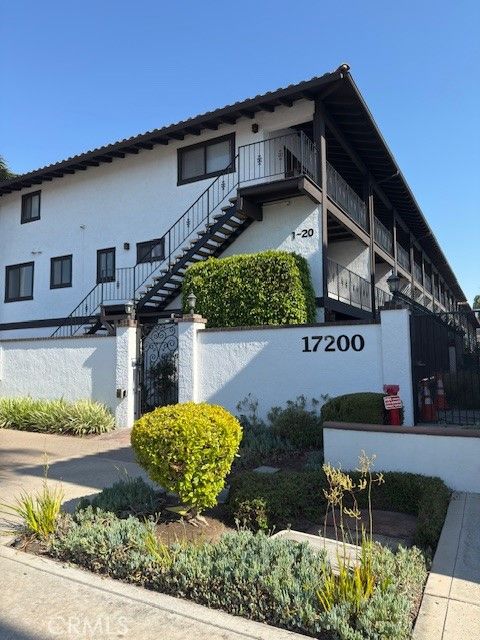
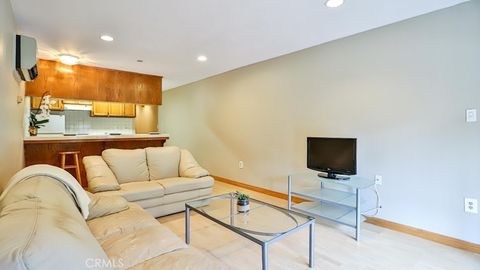
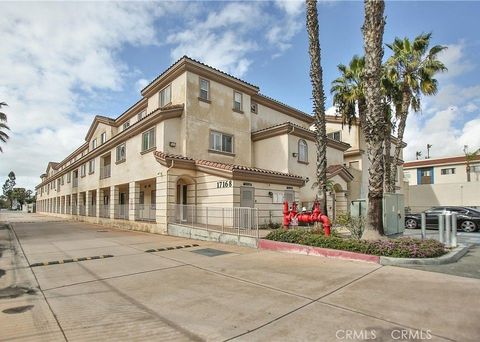


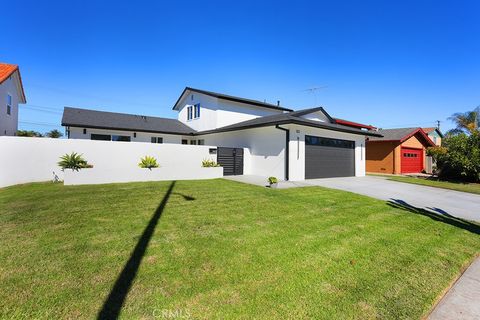
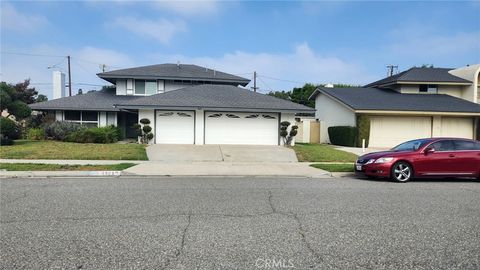

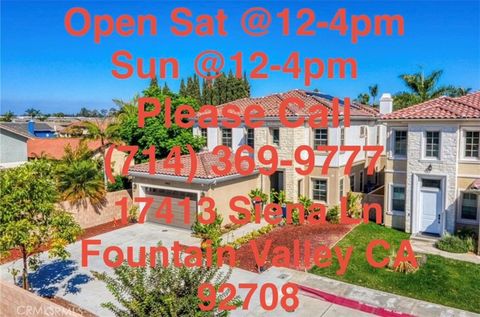
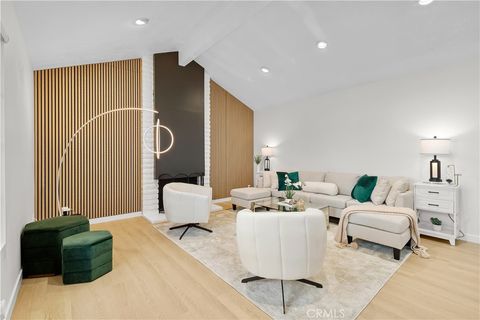
Leased Solar Panels May Create Dilemma for Sellers
Leased Solar Panels May Create Dilemma for Sellers by Stovall Team, Fountain Valley, CA Real Estate
Most solar power companies sell and/or lease solar panels with promises of large reductions on power bills and added value to your home. If you plan to lease a system, consider the terms of the lease seriously before getting involved. If you plan on selling your home prior to the lease payoff there may be serious consequences that will affect your net proceeds. If you do decide to sell your home before the lease term is up, the seller must either convince the buyer to take over the outstanding lease, or purchase the system for potentially tens of thousands of dollars, depending on how many years are left on the lease. You could also be responsible to pay the remaining fees if the buyer isn’t interested in the system. These costs will come directly off the top of your net profit. The solar company will actually be protected via an encumbrance against your title and these costs will be paid directly out of escrow at close. Therefore, if you plan to sell in the short term, you might want to rethink a Solar Lease and the potential negative impact on your equity.
Now that home sales are picking up again in the aftermath of the housing crisis, some homeowners who signed long-term solar leases have run into a dilemma. Under the terms of most agreements — which typically span 20 years — selling your home won’t get you out of the obligation of the lease. There are Government Tax incentives and Power Company rebates but they only cover a portion of the obligation. Also, incentives help you out in a particular tax year but the obligation still exists.
When a home is sold, the seller has to buy out the solar panel contract, transfer the lease to the buyer, or relocate the panels to another home. Sometimes these transfer obligations are much more easily said than done. The Solar industry touts that it’s cost effective and easy for the seller to transfer the solar power lease; this can only happen if the buyer is willing to accept the terms and obligation. If for any reason a potential home buyer doesn’t want to accept this obligation they might just walk away from a purchase. These costs can vary from $150-$500 dollars per month and can range for many years in the future for the new buyer. This can make significant difference. Although most buyers are attracted to solar features, they aren’t planning to pay extra to receive them.
The solar industry also boasts that solar panels make residences more appealing to potential buyers and boost a house’s value. The U.S. Department of Energy’s Lawrence Berkeley National Laboratory released a study in 2011 that found homes with solar systems sell for a premium over homes without solar systems. We don’t argue the value of solar power but feel there may be many potential sellers that are not clear of the possible ramifications. Furthermore, it’s also a good option to purchase the system outright therefore eliminating any potential chance for lost equity. A purchased solar system can only add to the upside potential of your home sale. By Steve Stovall